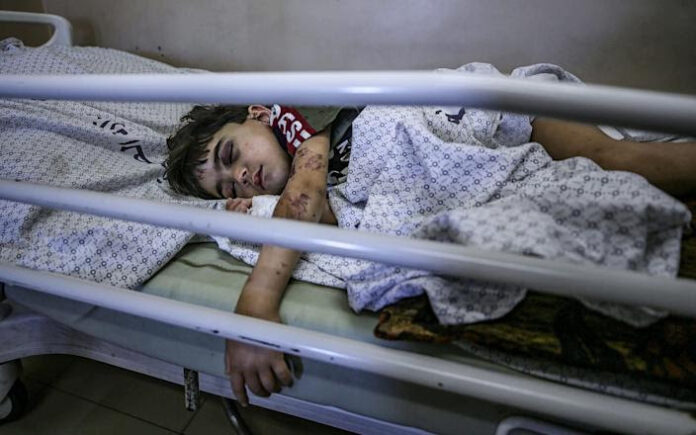
Benjamin Netanyahu, the Israeli prime minister, has claimed that the bombardment of Gaza has “set Hamas back by many years” amid reports that a ceasefire being brokered by Egypt could come into effect on Thursday morning.
While visiting an airbase, Mr Netanyahu said Hamas has “received blows it didn’t expect” as the Israeli military continued to launch airstrikes on Gaza and Hamas launched rockets towards Israel overnight.
- Explainer: Ahead of Trump Facebook ruling, here’s how social media sites handle world leaders
- Climate change: Future-proofing coffee in a warming world
Both Hamas and Israel deny that a deal on a ceasefire had been reached, though the left-wing newspaper Haaretz quoted an Israeli official as saying that an agreement would likely be reached by Thursday.
The latest comments from Mr Netanyahu suggest that he is eager to present the fighting as a major victory to the Israeli public, in a potential sign that the conflict could be winding down.
However, he has also repeatedly insisted that the fighting will go on for “as long as necessary.”

In a 25-minute attack overnight, 52 Israeli aircraft struck what Israel’s military described as Hamas tunnels in the southern Gaza Strip. The IDF said 40 targets were hit in the operation.
Nearly 450 buildings in the Gaza Strip have been destroyed or badly damaged, including six hospitals and nine primary-care health centres, since this round of conflict began, the UN humanitarian agency said.
Some 48,000 of the 52,000 displaced had gone to 58 UN-run schools.
Israel said more than 3,450 rockets had been launched at it from Gaza, some falling short and others shot down by its Iron Dome air defences. It put the number of militants it has killed at about 160.
Hamas began firing rockets nine days ago in retaliation for what it said were Israeli rights abuses against Palestinians in Jerusalem during the Muslim holy month of Ramadan.
By taking the lead in confrontation with Israel over the sensitive issue of Jerusalem, Hamas also posed a challenge to its main rival, West Bank-based President Mahmoud Abbas, who last month cancelled a parliamentary election in which the group appeared likely to make gains.
These hostilities are the most serious between the militant group and Israel in years, and in a departure from previous Gaza conflicts, have helped fuel street violence in Israeli cities between Jews and Arabs.
France called on Tuesday for a UN Security Council resolution on the violence, but it was unclear whether the US would block it for the fourth time since violence began. Diplomats said the United States told the council a “public pronouncement right now” would not help calm the crisis.
SOURCE: YAHOO NEWS




